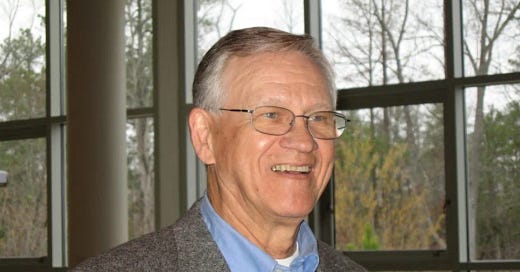Stages of Grief and COVID-19
When Elisabeth Kübler-Ross wrote her classic book on the stages of grief in 1969, she was analyzing the experience of persons who receive a diagnosis of terminal illness or those who experience the pain of the death of a loved one. The five stages of grief that she describes can also provide insight into our current experience as we ponder the ravages of COVID-19.
Denial
A person with a fatal diagnosis may exclaim, “That can’t be true; I feel fine!” Just so, our president declared, “It’s a hoax,” and “There are only 15 cases and they will go away soon.” He and most Americans continued to meet, greet and interact as though nothing was amiss for weeks after the cases began to climb and public health experts issued dire warnings. Congressmen even urged people to take the family out for dinner, and students thronged the usual spring break beaches and pubs even as schools closed and major political and athletic events were cancelled.
Anger
Denial turns into anger in many terminally ill patients, “This is so unfair.” It is the “Curse God and die” lament of Job’s angry wife. Similarly, our president protests that it’s a foreign virus, the Chinese virus, and his staff goes snarky, calling it the “kung-flu.” When questioned about the government’s slow response and his own false and misleading comments he whines, “It’s not our fault; everything we have done is perfect; the media has made it up to hurt me and my presidency.” The media continues to press, “How did this happen; who is to blame; whose statements can we trust?” Many people seethe as they anticipate the draining of their finances, the collapse of their businesses, the loss of jobs and their futures.
Bargaining
The terminal patient may plead, “Let me live till my grandson graduates,” or “If I get through this I will change the way I live.” It is a grasping for straws, hoping that a miracle will make it all OK, or that through technology or genius a stunning solution will be revealed. If a new (or old) treatment is found to be effective: “Wow, it worked on six people in an early trial. It’s a game changer!” At its most crass, we see that a corporation in Germany is way ahead in developing a vaccine, so our president wants to buy the company and get exclusive rights to the vaccine. Meanwhile, the Congress argues, negotiates and tries to make deals to help the segments of society that each faction cares about the most.
Depression
The grieving person may then fall into a sense of hopelessness and despair: “It’s as good as over, why even try to do anything,” or, “I can’t go on without my wife.” We are a long way from that danger as a society, though some persons may well sink to that depth as the cases mount, the death toll rises and their fear along with it. Especially when a loved one or we ourselves receive a dread diagnosis, any one of us will find our inner faith, courage, and resilience stretched to the breaking point. This is a particularly difficult time for many because the normal resources for spiritual, mental and moral support are shut down and unavailable. Religious groups, caring organizations and support groups are finding unique ways to reach out and provide solace and comfort, but their resources are stretched in unprecedented ways as well.
Acceptance
A dying patient or a loved one may finally reach the point of acceptance and resignation, of “Que sera, sera, whatever will be, will be.” That moment will probably never come for us as a society. A vaccine and effective treatments will be developed and we will see light at the end of this dreadful tunnel. In the meantime, however, a disciplined acceptance of the current state of affairs, of the uncertainty regarding how long it will take to come out of this tunnel and of the restrictions that have been imposed is very important. If we let the current state of affairs exacerbate our frustration and anger we will only make ourselves and others more miserable.
Reinhold Niebuhr’s famous prayer can help us all at this time: “God, give me the serenity to accept the things I cannot change, the courage to change the things I can, and the wisdom to know the difference.”
Rev. Rollin Russell




